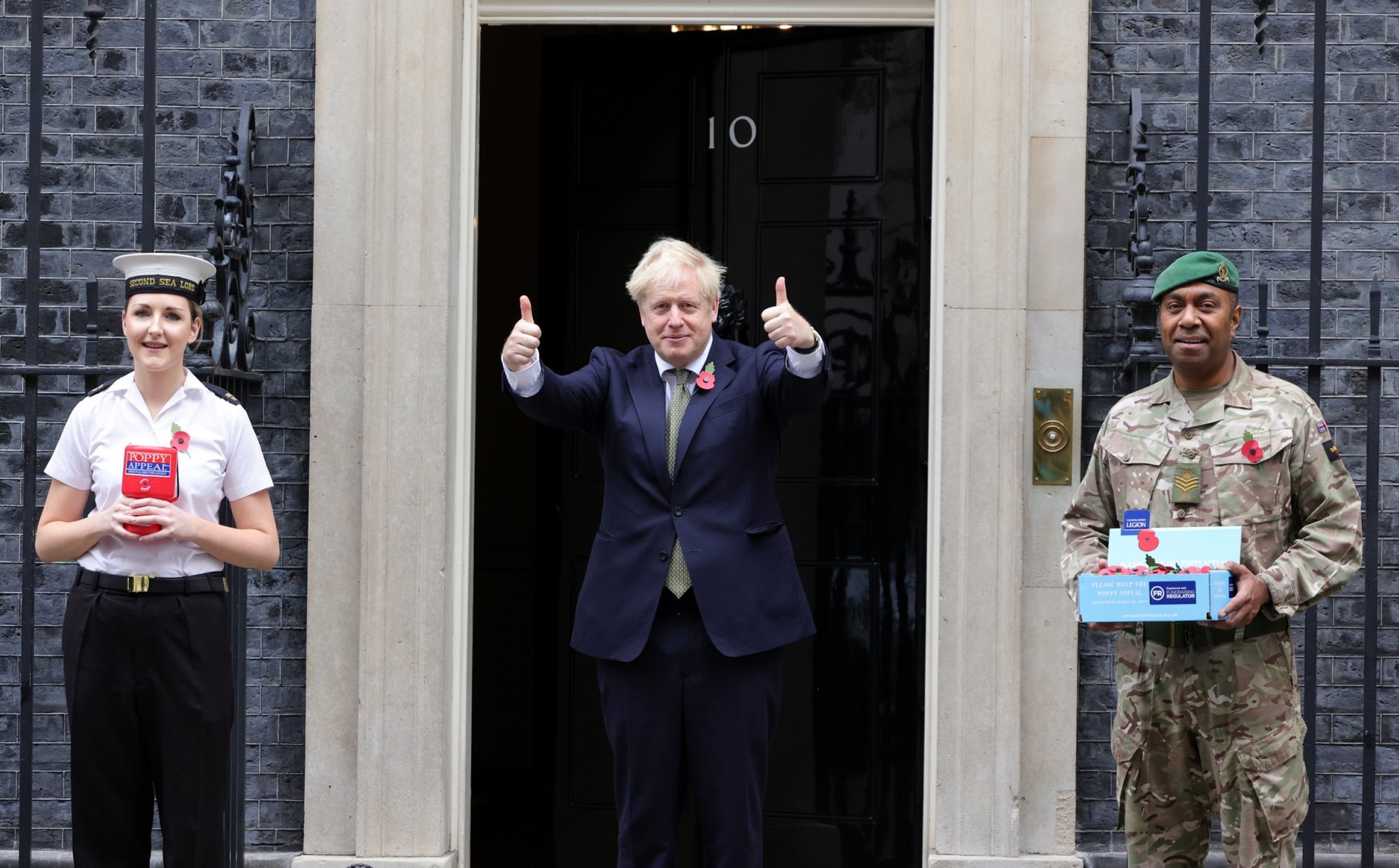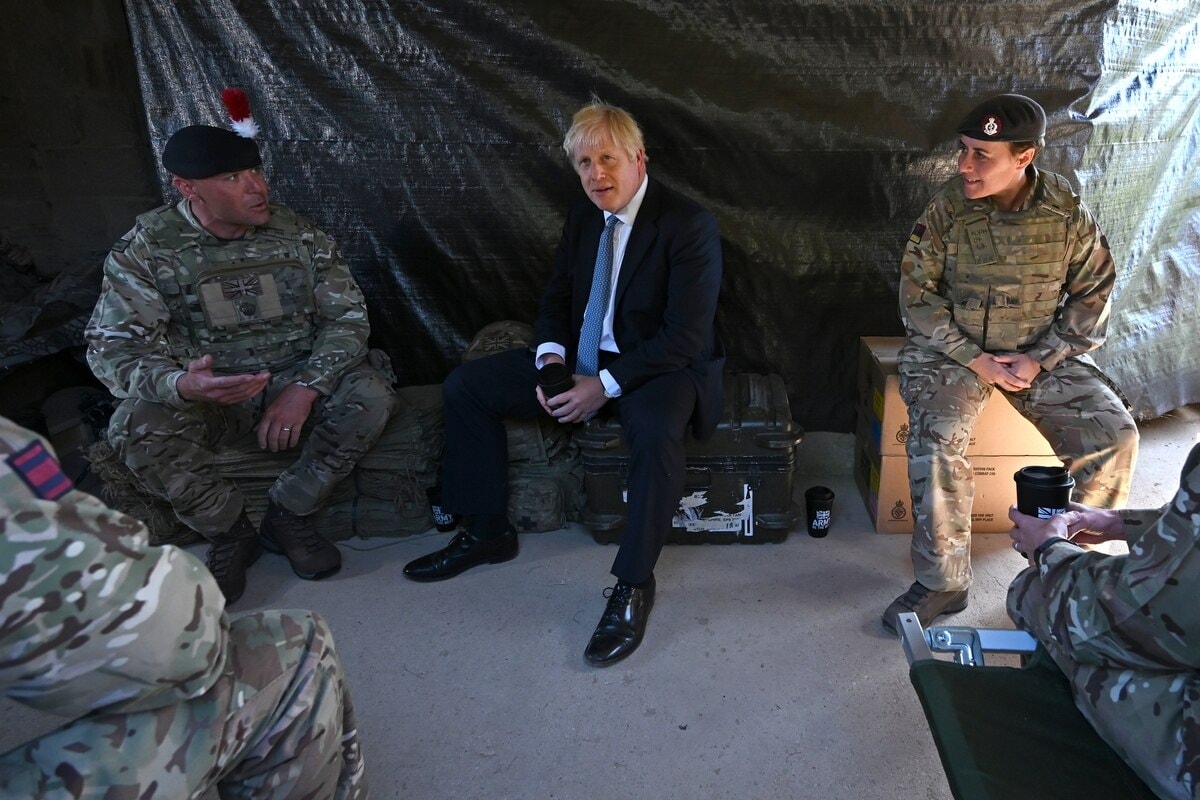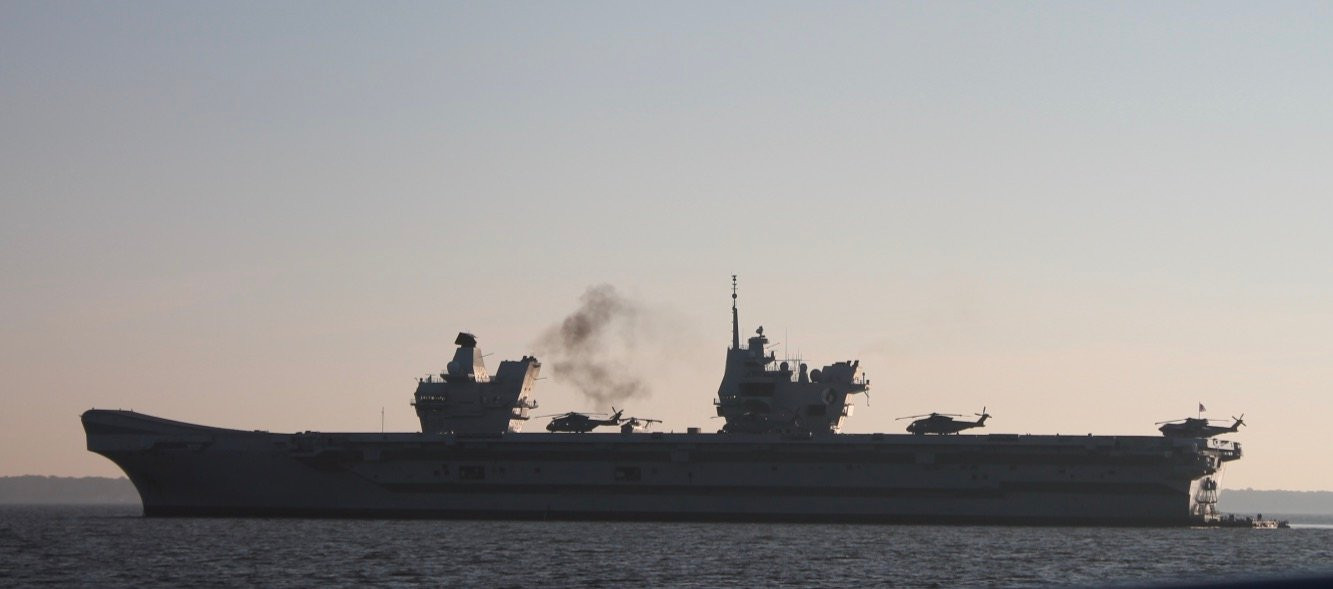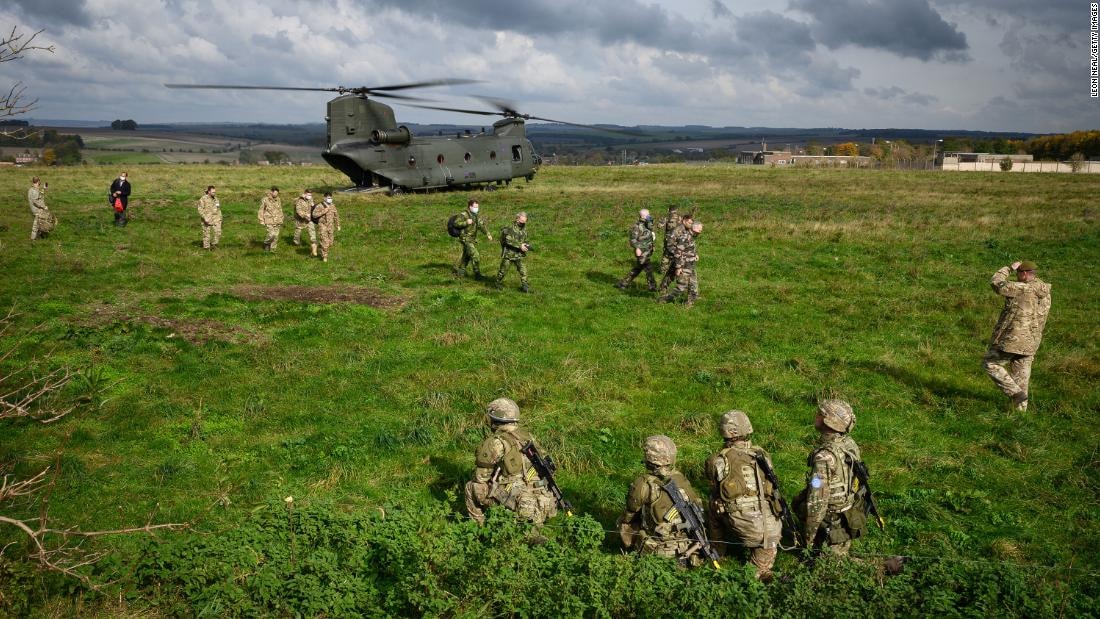Prime Minister Boris Johnson's 'Global Britain' strategy
(Baonghean.vn) - The British government has decided to increase defense spending to its highest level since the Cold War, pledging to end the "era of cuts". This is considered a strategic move by Prime Minister Boris Johnson in an effort to redefine Britain's role in the international arena in the post-Brexit era.
In the midst of "chaos"
Despite the Covid-19 pandemic that is seriously affecting the economy, the British Government said that it will add 24.1 billion pounds to the country's military over the next four years, much higher than the 16.5 billion pounds previously committed. With this decision,UK defense budgetIn the coming years, it will account for 2.2% of GDP, higher than the 2% that the US requires NATO members to achieve. The UK will also have the largest defense budget in Europe and the second largest in the NATO military alliance, after the US. So what makes the UK make such a bold decision in the defense sector at a time when most other countries are focusing on economic recovery or public health investment?
 |
| British Prime Minister Boris Johnson stands outside 10 Downing Street, London, on October 23, 2020. Photo: USNI |
First of all, according to the explanation ofPrime Minister Johnson, the world is in the most dangerous situation since the end of the Cold War. “Everything in the UK, from jobs, businesses to eating and shopping, depends on the smallest security factors,” Mr. Johnson emphasized. These seem to be reasonable explanations, because the UK is now “outside” the common roof of the EU. It is time for this country to promote security policies in its own direction.
Second, domestic political challenges may also be part of the Downing Street boss’s calculations. Facing criticism over his handling of the Covid-19 crisis, Johnson wants to maintain support in the northern counties he has taken away from Labour, and also to retain as much support as possible from trade unions north of the Scottish border. Strengthening military defences would likely please members of Johnson’s Conservative Party and be a great way to demonstrate where his priorities lie.
Third, in addition to the important meaning in terms of defense, the budget increase plan with priority to build 12 new warships is also expected by Mr. Boris Johnson to be a catalyst to unite the territories of the United Kingdom by reviving the shipbuilding industry that once played an important role in the economic life of the regions of Scotland and Wales. The decision is also seen as an attempt to appease the anger of many politicians and people in Scotland after Mr. Boris Johnson's statement a few days ago that the process of gradually devolution of more power to Scotland was a "disaster".
 |
| British Prime Minister Boris Johnson meets servicemen in a tent on Salisbury Plain training area in September 2019, in Salisbury, England. Photo: Getty |
Present,the wave of secession from the United Kingdomin Scotland is rising again after the Brexit event in 2016 and the government of Boris Johnson has mishandled the Covid-19 pandemic. The ruling Scottish National Party in this region has recently been actively campaigning and pressuring the UK Government to allow a second referendum on independence.
Fourth, Mr. Johnson also needs to build a relationship with the incoming US president. Immediately after the US media “announced” Mr. Joe Biden as the winner of the US presidential election for the next 4 years, the British Prime Minister sent congratulations and pledged that “the UK will continue to be a valuable military ally of the US.” If Joe Biden takes office in January, the UK will demonstrate to the US leader that it is a reliable and well-equipped military partner. In the new budget plan, the UK also set aside a sum of money for joint research efforts between the US and the UK, called “next generation,” focusing on projects such as hypersonic missiles and directed energy weapons.
New global role
The British government’s biggest aim in planning for a bigger defense budget is to find a new global role as it leaves the EU. For decades, Britain, along with France, was America’s main battlefield ally in Iraq and Afghanistan. But the 2016 referendum to leave the EU has left London’s global role uncertain. At the same time, China has risen strongly and the administration of US President Donald Trump has expressed doubts about the value of relationships with traditional allies.
 |
| British aircraft carrier HMS Queen Elizabeth in Chesapeake Bay, outside Annapolis. Photo: USNI |
The increase in defence spending will help Britain maintain its position as a middle power alongside countries like France, Germany and Japan, but still lag behind the US and China. The UK is expected to focus spending on leading-edge technology areas, including cyber and space capabilities, while addressing weaknesses in defensive weapons. Mr Johnson will also announce a new agency dedicated to artificial intelligence (AI), a National Cyber Force and a Space Command with the ability to launch its first missiles by 2022. Meanwhile, nearly £6 billion will be invested in military research and development, including upgrading airborne weapons systems.
However, the focus of the UK's planned defense budget increase this time will be massive investment in the Navy. Prime Minister Boris Johnson declared that Britain will restore its status as aThe strongest navy in Europeapproved a plan to build 12 new destroyers and develop a new generation of warships. Regional observers called this “an early Christmas gift from the Royal Navy”.
Meanwhile, Prime Minister Johnson also confirmed plans to deploy the HMS Queen Elizabeth aircraft carrier strike group to the Indian Ocean and East Asia next year, as part of its first long-range deployment. London's strategic intentions for the Indo-Pacific region will be better understood when the British Government publishes its Integrated Review of Foreign, Defence and Security Policy early next year.
 |
| A CH-47 helicopter carrying senior British officers arrives at a Ministry of Defense training area in Salisbury on October 14, 2020. Photo: CNN |
However, based on the information available, observers speculate that the UK will deploy an aircraft carrier to the Indo-Pacific region once a year or, more realistically, once every two years. It is also possible that a British destroyer could be deployed to Asia on a more permanent basis. This model has been used by the Royal Navy in Bahrain, in the Middle East, where HMS Montrose is based for a period of three years.
All of this is to ensure that post-Brexit Britain will play the role of a “major player” on the world geopolitical chessboard. Prime Minister Johnson wants to turn the slogan “Global Britain” into a reality, first of all, by growing its defense capabilities, ensuring London’s security presence in strategic areas of the world.

.jpg)

